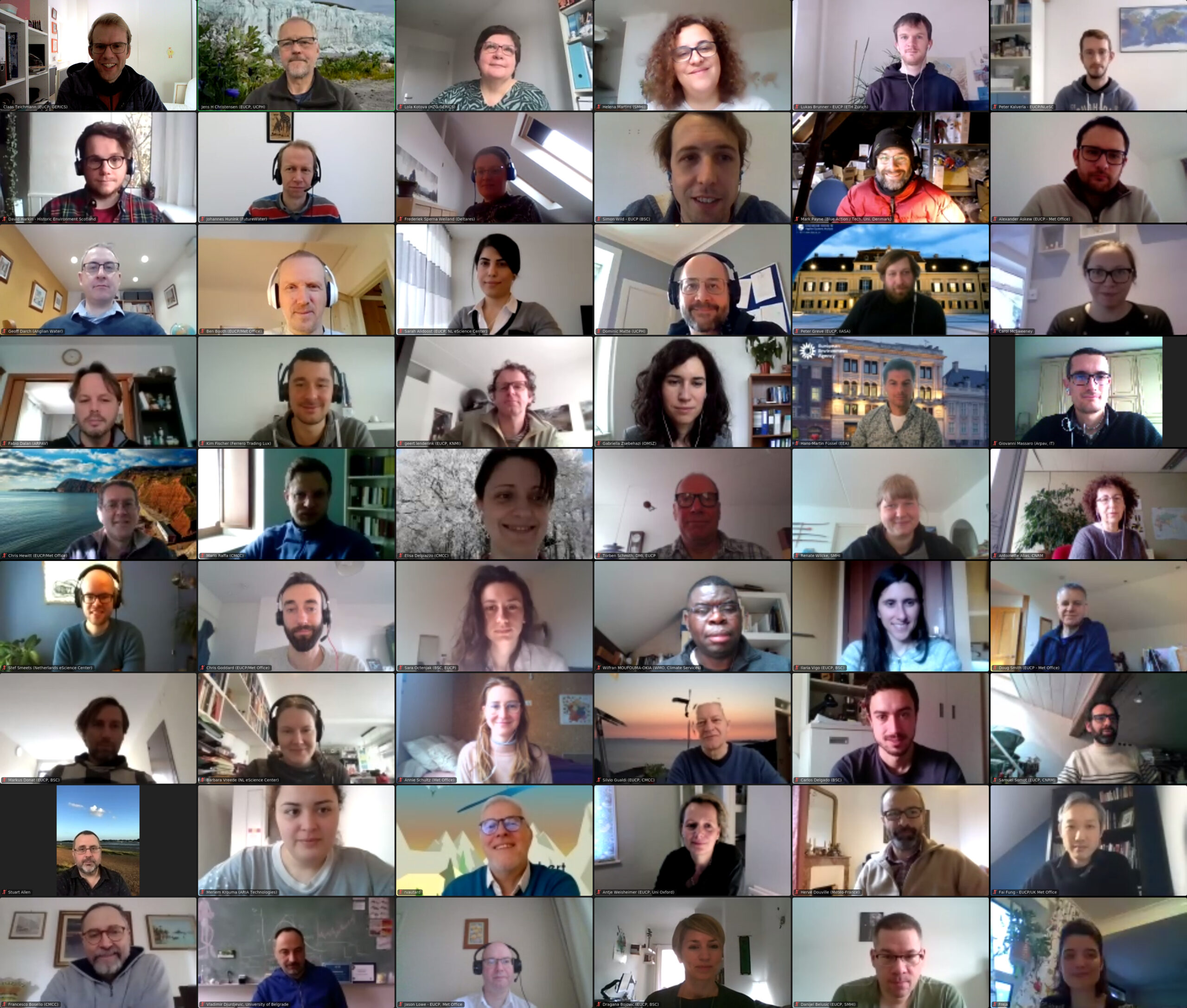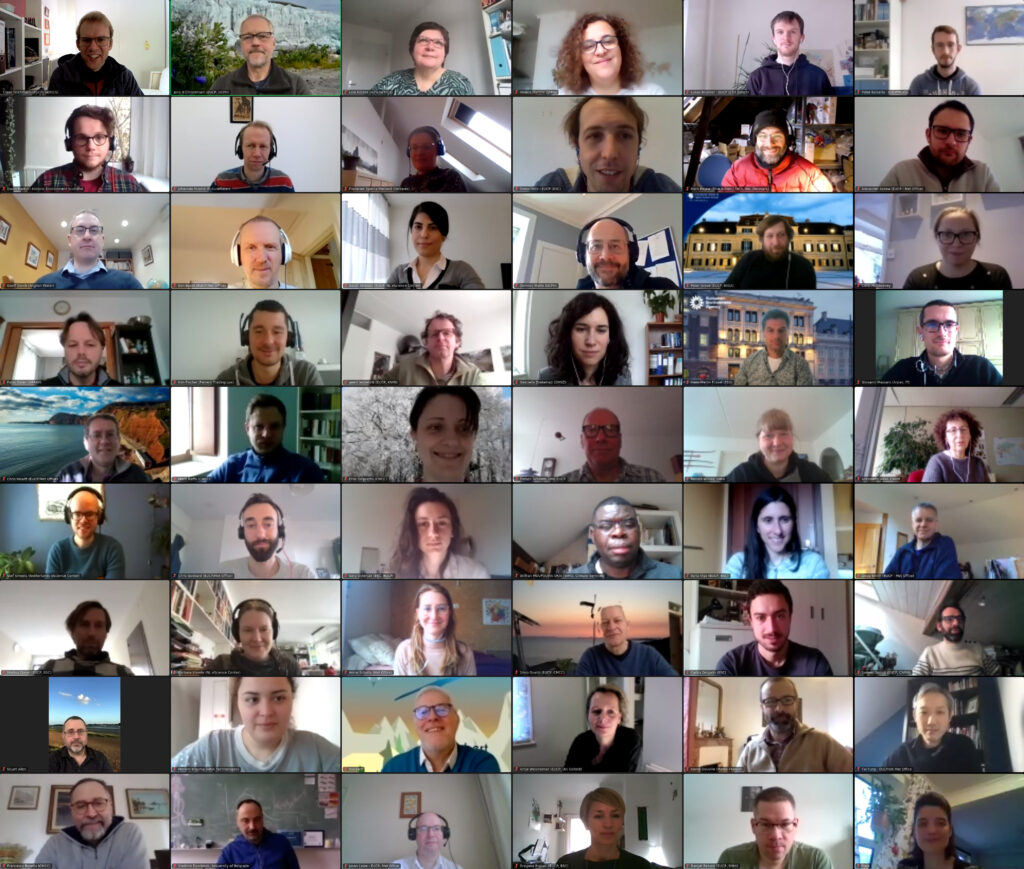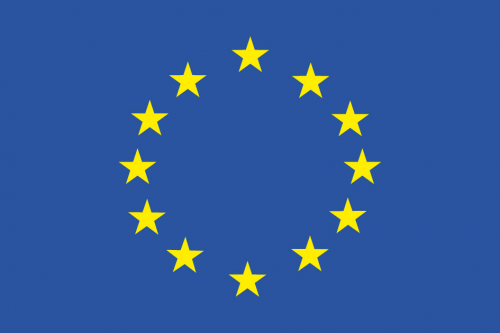On February 8th 2021, we hosted our first workshop with the members of our Multi-User Forum (MUF). This forum brings together representatives from public bodies and authorities, civil society organisations, businesses, financial organisations and academic institutions interested in climate information. Its aim is to enhance collaboration between these users of climate information and scientists to influence the design of the climate prediction system that EUCP is developing, and ensure it is as useful as possible.
The goal of this workshop was to identify areas where we can further improve the information we produce. The event was successful in bringing 65 participants together. Their feedback was extremely useful in highlighting areas that would make climate information more useable:
- Most users have expressed that they would benefit from more guidance to select model information and trust it is the right one for their needs. As there is a large number of climate projections available, navigating them remains a challenge in using climate information. Tools like model constraints or storylines can help with this, and it was agreed that a deeper collaboration between EUCP scientists and users would help to progress this further.
- Users highlighted the need for really clear guidance about what data products are available from the EUCP project, and where to find them.
- Representatives from the agricultural and water management sectors confirmed their interest in decadal predictions and the level of detail they provide. Drought analysis, for example, would be particularly useful.
- Representatives from urban planning and adaptation organisations highlighted the importance of having worst-case scenarios in climate projections, which they use for testing the resilience of infrastructure to future climate. Results from our high-resolution convection permitting model are very useful in this regard. However, given that this model produces a large amount of data, users would benefit from syntheses of model outputs and from a tool enabling users to extract particular information such as future extreme precipitation.
The workshop offered users different paths for further collaboration to progress the areas above:
Level 1 – Information sharing: Users remain informed of new EUCP developments relevant to climate data, climate risk assessment and forecasts through our external communication channels (newsletter, project website and social media).
Level 2 – Discussion and dialogue: Users explore new EUCP developments and their technical implications for their organisations. This involves optional attendance at a small number of technical workshops, and occasional focused discussions with scientific experts on topics of particular interest.
Level 3 – Knowledge co-development: Users actively collaborate with EUCP researchers by providing input to research tasks and exchanging knowledge.
Currently, most MUF members already share information with EUCP (level 1), and around fifteen have entered in discussions with parts of the project (level 2). The workshop provided very promising signs of deepened engagement as two users have already expressed interest in co-developing knowledge (level 3) during the event, and more will have the opportunity to do so through a follow up survey.
EUCP partners are looking forward to developing these engagements over the coming months!





 Funded by the European Union under Horizon 2020.
Funded by the European Union under Horizon 2020.